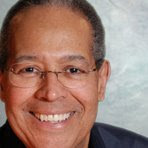My brother used to use the trashcan as a toilet. He would do it in his sleep, traveling down two flights of stairs, through the kitchen and into the back hall before he relieved himself. The first time this happened Mary Collins didn't know what to make of it. Mom and dad went into protect mode and for the first time I can remember they collaborated in a lie. I must have been four years old, but I knew what they were telling me was not true; that my aunt had thrown away an ice cream container without rinsing it and it melted all over. Ice cream doesn't smell like that.
What I noticed were darting, diverting eyes and closed posture on two people who looked at me every chance they had and their demeanor was always open, warm and loving. It's something that was filed away in that little boy and stays with me now, 51 years later. Few people have enough control to divorce their body's reaction from what they are saying and thinking. And when these two things are inconsistent there are triggers that with a little bit of training an observer can detect. We are all lie detectors.
Recently I was having problems with a co-worker. We had come to an impasse and the situation was deteriorating very quickly. We would meet and there was never a time when her arms weren't folded and legs crossed and drawn up as high as the legs of the chair would allow. Nothing I could say would have made our relationship any better.
In Malcolm Gladwell's outstanding examination of human interaction, "Blink," he writes about those first impressions. I call them super first impressions. These are the signals we get the moment we come into range of another person or a situation. But you have to be ready and open to exactly what is being communicated. Here is a great example of being blind and blind-sided. Back in the late 70's I lived and worked in a downtown business and residential complex. The Radio stations were on one floor and in the mall below there were stores, restaurants and bars. Back then the bars were as important as my place of employment. On the lower level was a place called the OK Corral. It was little more than a shot and a beer joint with Asteroids games, pool table and unlimited peanuts. It was frequented by cops, guys who worked in the" boiler room" call centers and other restaurant workers.
On the night of April 20, 1977 – the date is significant – I dropped in even though the barn-like sliding doors were partially closed. I saw the cops at the bar, just like most nights, and the bar tender, Dick was where he usually was at 9 o'clock on a weeknight. But Dick shot me a look that to this day I still remember; it was intense hostility. I walked to the bar and it was only then I noticed that some of the Cleveland Police uniforms, even in the dim light, had a decidedly different look. And there was a new decoration behind the bar: a full-sized Third Reich Battle flag hung over the mirror above the liquor bottles. The uniforms were not that of the CPD, but various replicas of Nazi military garb. Clearly I was in the wrong place and precisely the wrong time. Guys I thought I knew were having a birthday party for Hitler. Here's the rub, I thought it was a joke until one of the cops, a sergeant named Molnar, came over and told me, "you aren't welcome here, mud boy." The significance of the epithet did not hit me until much later.
How could I be so blinded to the clear signals, the body language and more, of this volatile situation? Easy, I wanted a drink more than I wanted to pay attention to my surroundings. That is a whole other topic. For now let's just say I learned a valuable lesson that probably save my life and the lives of my family on more than one occasion. If anything I might be too sensitive to non-verbal communication.
Watch the eyes, the movements and the expressions of others. Don't let your own wishes, hopes and fears get in the way. It might surprise you just how much is being said no matter what the other person says.

No comments:
Post a Comment